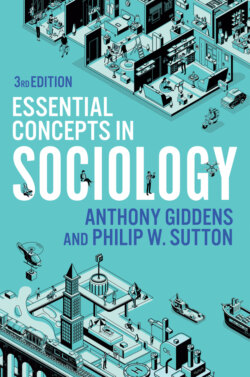Читать книгу Essential Concepts in Sociology - Anthony Giddens - Страница 76
Continuing Relevance
ОглавлениеThe immediate response of governments around the world to the Covid-19 pandemic of 2019–21 was to turn for advice and guidance to epidemiologists and medical science. This was clear evidence that science is still viewed as a superior form of knowledge compared to theological knowledge or common-sense ideas. The basis of this superiority seems to be rooted in the practical successes of science rather than in a widespread understanding of scientific methods. In sociology, there has long been disagreement on whether it is desirable for the discipline to be and be perceived as ‘scientific’, which seems to have settled into an established divide over what are appropriate research methods.
Schwemmer and Wieczorek (2020) argue that this divide can be seen in studies that adopt predominantly qualitative or quantitative research methods. They maintain that this division makes sociology a ‘low-consensus discipline torn between rival camps aligning themselves epistemologically either to the natural sciences or the humanities’ (ibid.: 4). These camps are located in different philosophies of science. Those leaning towards humanities favour constructivism and logical induction, while those looking to the natural sciences align with positivism and the deductive method. Academic journals tend to be seen as focusing on subjects that lean towards quantitative or qualitative work, and this unintentionally reinforces already entrenched positions. However, Schwemmer and Wieczorek’s study also found evidence of this divide in their sample of the more generalist sociology journals between 1995 and 2017. Hence, in spite of more recent trends in mixing research methods from across the divide, this paper suggests that longstanding issues concerned with the scientific status of the discipline remain embedded within the structures of sociological discourse.
